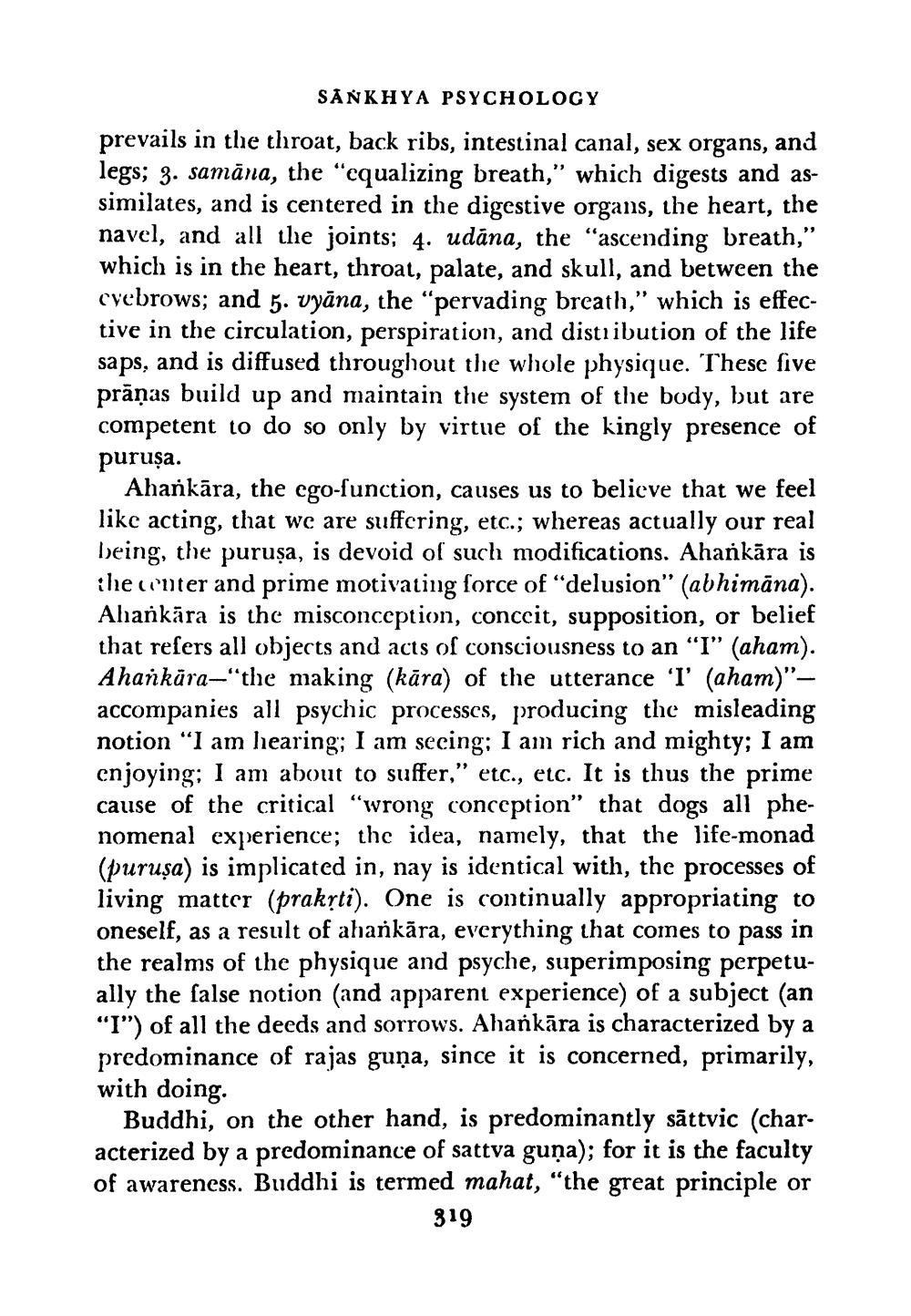________________
SANKHYA PSYCHOLOGY
prevails in the throat, back ribs, intestinal canal, sex organs, and legs; 3. samāna, the "cqualizing breath,” which digests and assimilates, and is centered in the digestive organs, the heart, the navel, and all the joints; 4. udāna, the “ascending breath,” which is in the heart, throat, palate, and skull, and between the cyebrows; and 5. vyāna, the "pervading breath,” which is effective in the circulation, perspiration, and distribution of the life saps, and is diffused throughout the whole physique. These five prāṇas build up and maintain the system of the body, but are competent to do so only by virtue of the kingly presence of puruṣa.
Ahankāra, the ego-function, causes us to believe that we feel like acting, that we are suffering, etc.; whereas actually our real being, the puruşa, is devoid of such modifications. Ahankāra is ihe center and prime motivating force of "delusion" (abhimāna). Aliankāra is the misconception, conceit, supposition, or belief that refers all objects and acts of consciousness to an "I" (aham). Ahankāra—"the making (kāra) of the utterance l' (aham)"– accompanies all psychic processes, producing the misleading notion "I am hearing; I am secing; I am rich and mighty; I am enjoying; I am about to suffer,” etc., etc. It is thus the prime cause of the critical "wrong conception” that dogs all phenomenal experience; the idea, namely, that the life-monad (puruṣa) is implicated in, nay is identical with, the processes of living matter (prakrti). One is continually appropriating to oneself, as a result of ahankāra, everything that comes to pass in the realms of the physique and psyche, superimposing perpetually the false notion (and apparent experience) of a subject (an "T") of all the deeds and sorrows. Ahankāra is characterized by a predominance of rajas guņa, since it is concerned, primarily, with doing.
Buddhi, on the other hand, is predominantly sāttvic (characterized by a predominance of sattva guņa); for it is the faculty of awareness. Buddhi is termed mahat, "the great principle or
819




